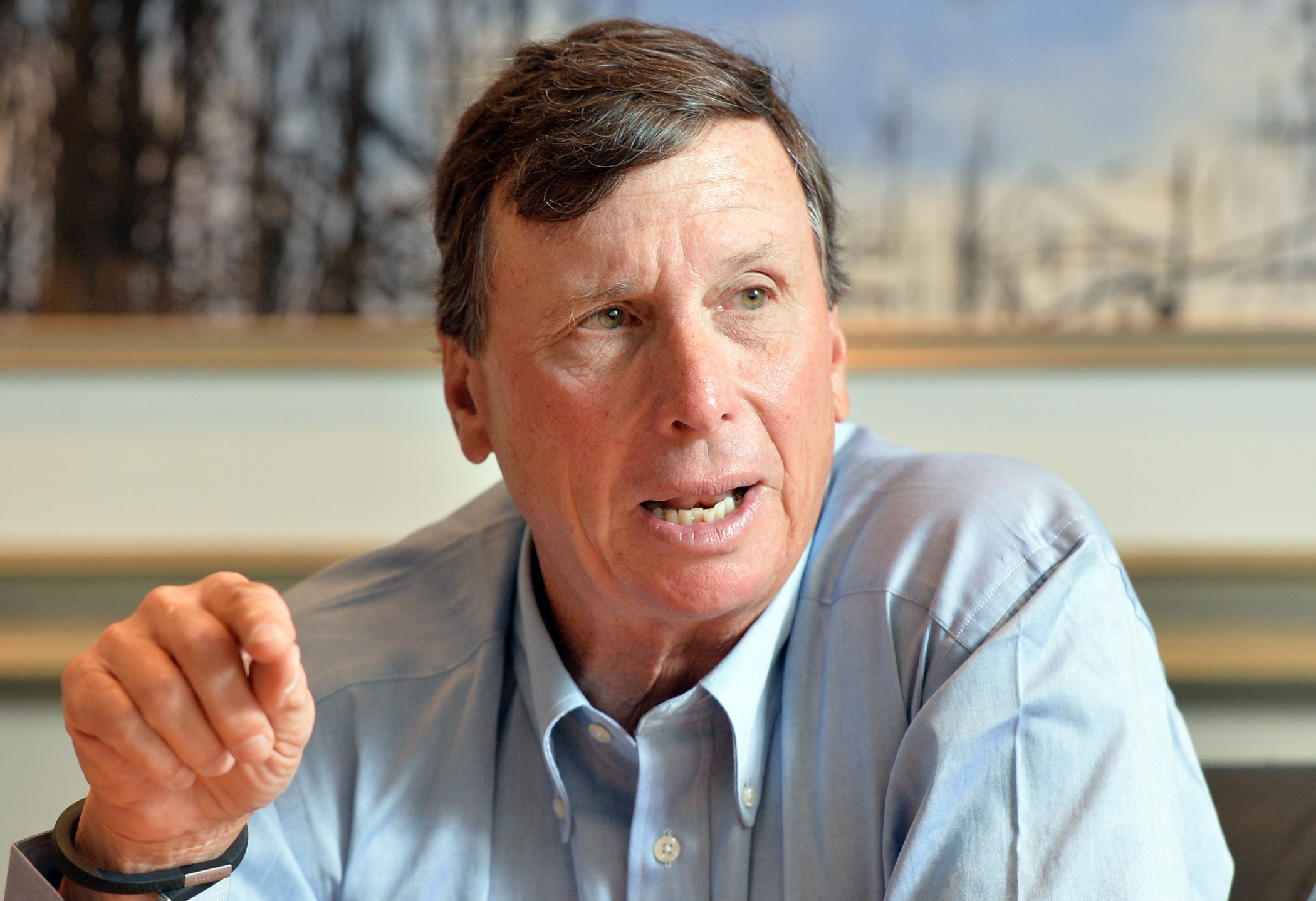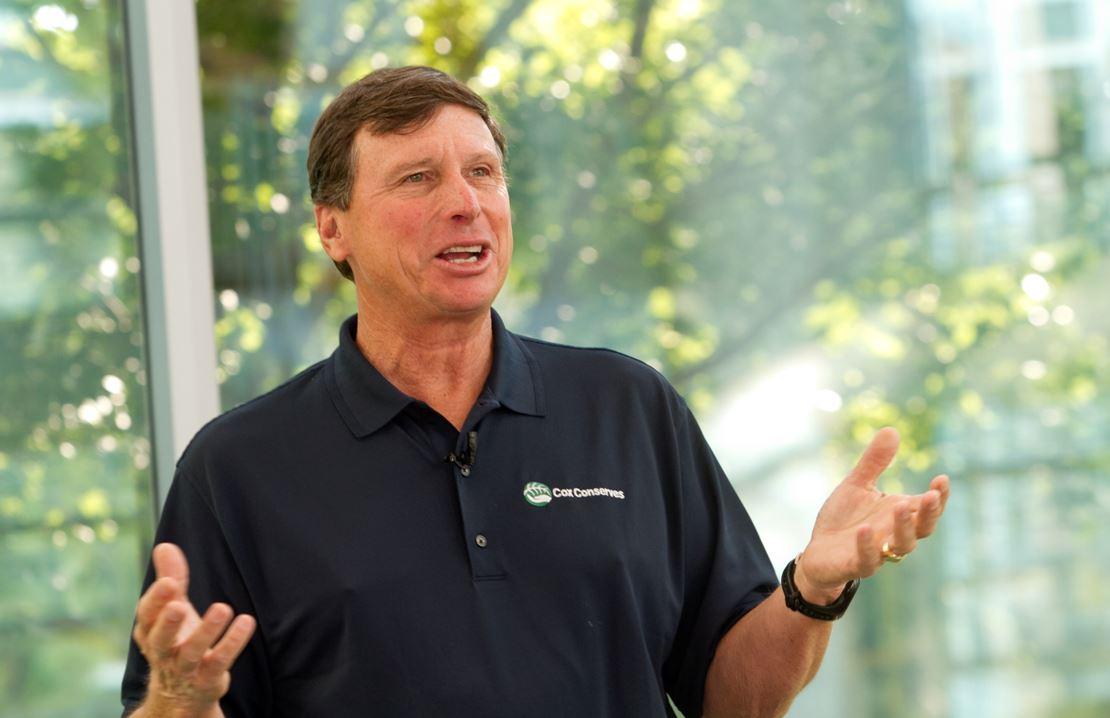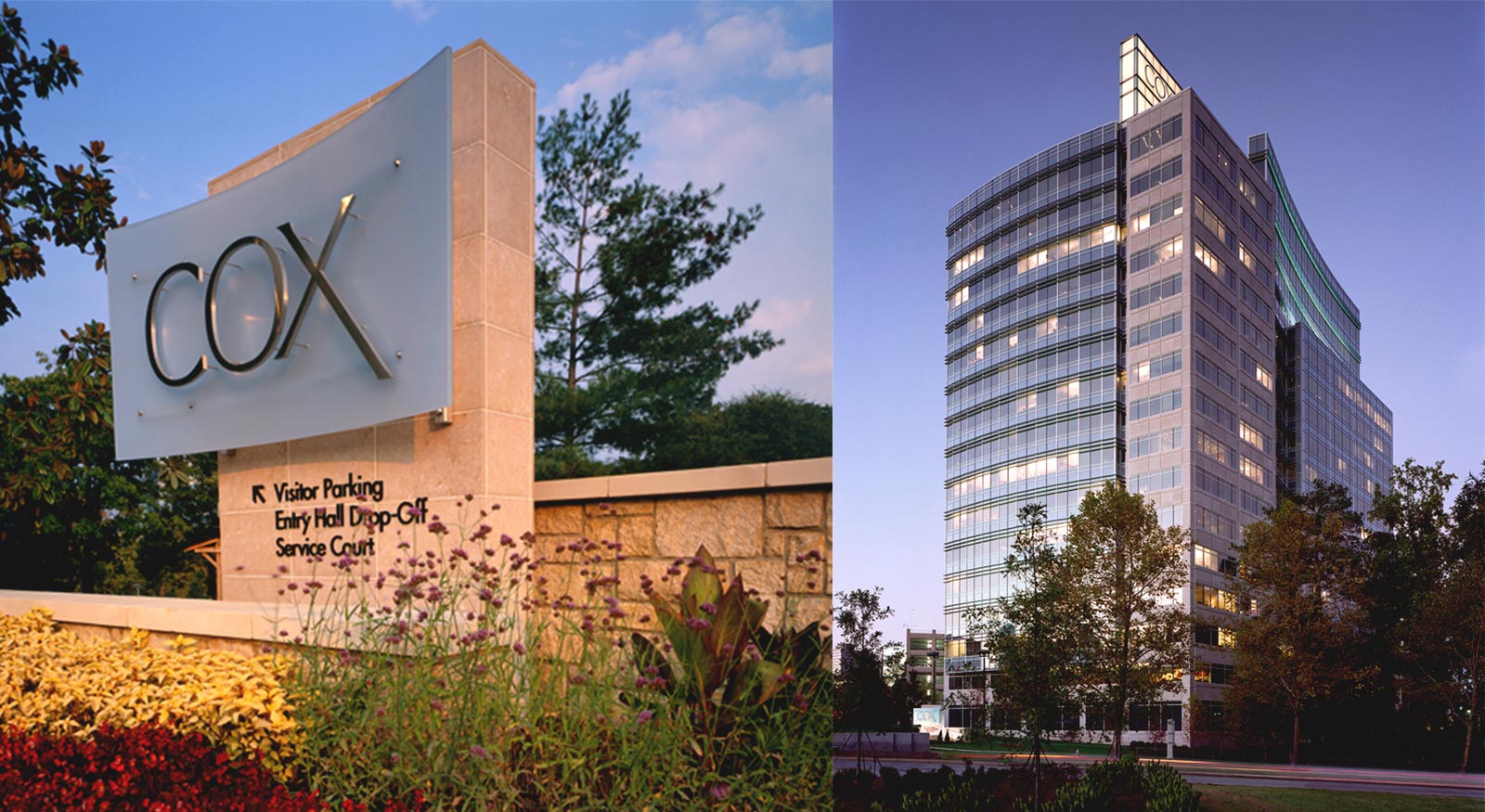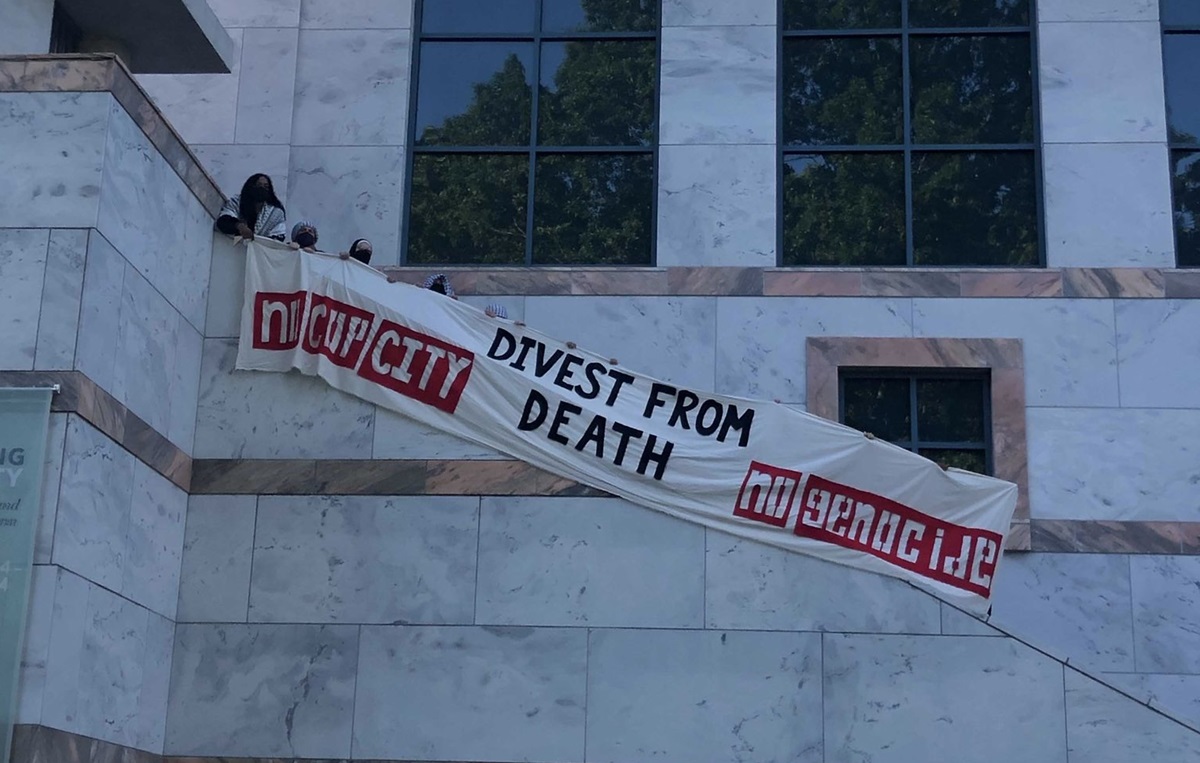Filed under: Making Monsters

James (Jim) Cox Kennedy is the 70-year-old ex-chairman of Cox Enterprises, a media and automobile conglomerate. The company was started by Kennedy’s grandfather, James M Cox, former governor of Ohio and presidential candidate, according to Kennedy’s bio on Cox’s website.
With a 2018 net worth of $13 billion, Kennedy holds only 25 percent of Cox Enterprises, according to his profile on Forbes. Kennedy resides in Atlanta, Georgia, and enjoys the title of the state’s wealthiest person, according to a disturbing map from Forbes that lists the wealthiest person in every U.S. state. Now you can meet your overlords at a local level!
 Before Kennedy, the multi-billion dollar company was shared amongst Cox’s daughters, Kennedy’s mom, Barbra Cox Anthony, and her sister, Anne Cox Chambers for 33 years.
Before Kennedy, the multi-billion dollar company was shared amongst Cox’s daughters, Kennedy’s mom, Barbra Cox Anthony, and her sister, Anne Cox Chambers for 33 years.
Anthony died in 2007, passing her half of the family fortune to her son Kennedy and his sister Blair Parry-Okeden. According to another Forbes article, Kennedy and his sister are tied as the world’s 50th wealthiest people.
Six years later, per Kennedy’s request, a judge split up Chamber’s 49 percent of Cox Enterprises amongst her three children, who each received $5.1 billion, according to an article from bizjournal.com.
Kennedy has kept a low profile, according to a previously mentioned article from Forbes which suggests Kennedy is a humble man because he drives a Prius when he could clearly afford multiple Bugattis.
“To this day Kennedy is uncomfortable with his wealth, insisting he’d rather be labeled a ‘d—head’ than a ‘billionaire’ in print,” said Adam Brown, author of the Forbes article.
The article continues to explain how Kennedy saved the dying enterprise by buying several media and automobile related agencies, framing Kennedy as a humble hero of business, because apparently humble billionaires exist. What a laughable concept.
In January 2018, Kennedy stepped down and his cousin, Alex Taylor, became the next CEO Taylor spoke with Forbes about his new role.
“We don’t look at success as how wealthy you are,” Taylor said. “That’s not the goal. The goal is to leave the company in bigger, better shape.”
That’s right, a billionaire claimed he doesn’t measure success in wealth. Let that sink in.
Calling Trump a racist ‘is the new McCarthyism’ — according to right-wing billionaire’s newspaper https://t.co/gPNxOTdumH via @RawStory pic.twitter.com/Lk0TsJWmhi
— ?The_News_DIVA? (@The_News_DIVA) January 16, 2018
An article from the Chicago Tribune breaks down the issue of global wealth inequality. The article explains how the bottom 71 percent of the world’s population holds only three percent of the world’s wealth. In a world where the majority of humanity is in poverty, Kennedy and his family are described as humble and painted as admirable, despite their collective worth of over 32 billion, according to the Washington Post, which names the family as the 7th richest in the U.S.
An article by Buzzfeed outlines a list of 11 things that $25 billion dollars could be used for in an attempt to discredit Trump’s spending on the xenophobic border wall. The list includes humble and noteworthy causes like fixing the water crisis in Flint, Michigan, paying for the adoption fees of over a million children, paying for college for almost 200 thousand U.S. students, relieving almost all world hunger for a year, and providing clean drinking water to the entire planet for about three years.
The money collecting dust in the vaults of the Cox family alone could end world hunger and thirst for a significant amount of time, but at least Kennedy drives a Prius, right?
The narrative of the Cox family is one that should be examined and discredited if humanity seeks to evolve past classist materialism and poverty. No multi-billion dollar family is humble and deserving of praise. The reality is that Kennedy inherited an empire, no different than the kings and princes of monarchy, and that does not beget celebration – no matter how well Kennedy was at his job.
Glorifying the Cox family because of their business savvy and finical status is the worshipping of wealth. When billionaires and world powers are framed as relatable, kind and humble it allows them to continue hoarding precious resources, effectively stripping those resources from the needy while being praised for their blatant greed and abuse.
Kennedy could drive a Prius or a magic carpet, he could be a monk or a narcissist, but that doesn’t change the sad reality that billions of disadvantaged and valuable human lives are being lost while the world’s money sits in the bank accounts of families like his own.
Still, the owners of capital face no consequences while the global working class grows larger and more unstable.
In fact, the Human Rights Campaign seemingly loves Cox Enterprises, rating them a 90 in terms of corporate responsibility. The HRC rates Cox so highly because of its anti-discrimination vendor and corporate policies, its diversity training and its involvement in supporting LGBTQ organizations.
Yes, these are great policies that should exist everywhere- but capitalist giants don’t deserve praise for doing what literally every employer should do- offering support and anti-discrimination policies to their LGBTQ employees.
There are multiple articles online that deem Cox Enterprises as a champion of LGBTQ rights in the workplace, and the while workplaces should be LGBTQ friendly, they should also support basic human rights- like the right for workers to earn a livable wage. According to Indeed.com, Cox Enterprises average pay for packagers is slightly above $9 per hour.
A ProjectQ article goes so far as to call Cox Enterprises, and a list of 9 other giant corporations, “perfect” because of their anti-discrimination policies.
This “perfection” leaves out adequate healthcare coverage for transgender people, according to the same list from the HRC.
Mainstream liberalism has perpetuated the idea that if giant corporations promote socially liberal values and pay their workers above minimum wage that those companies should be awarded. This idea allows for the normalization of mistreatment; we shouldn’t celebrate companies who provide access to basic human rights like healthcare, a living wage and the right to not face discrimination- we should persecute those that don’t.
We shouldn’t bestow Cox Enterprises with awards and respect because its LGBTQ policies are less harmful than those of its competitors. Real employee empowerment is the liberation of workers- it comes when the working class is able to hold the means of production, the capital, the wealth- when the global poor have access to food and water and healthcare, not when billionaires and their administrators decide to not discriminate against their queer U.S. employees.
Even big business-loving capitalists can’t always describe the conglomerate as an example of humble equal-opportunity business morale, as Cox is not immune to scandal.
According to Arstechnia, in 2015, Cox was made to pay a $25 million fine after being found guilty of ignoring music piracy (not a serious human rights violation, I know).
In May, a former Cox vice president was sentenced to just over two years in prison for her role in a multimillion-dollar embezzlement scheme according to a press release from the U.S. Department of Justice.
Cox Communications is currently facing a lawsuit claiming that hazardous waste was illegally dumped at a California location, according to NBC San Diego. The state attorney general, who filed the lawsuit, also claims that the Cox branch violated privacy rights by throwing away customer information without shredding or erasing sensitive information.
Perhaps the most disturbing reality of Cox Enterprises is that it has long acquired enough capital to solidify itself amongst an elite oligarchy of media companies.
The troubling trend of multiple media companies being bought by giant conglomerates is nothing new, according to – of all places – Business Insider, who cites an infographic that explains how just six media corporations had coerced 90 percent of U.S. media consumption by 2012.
A piece by Forbes, again shockingly, describes the oligarchization of the technology industry.
“Most Internet ad revenue belongs to a couple of companies – Google and Facebook – and retail essentially belongs to Amazon (which also owns an increasing percentage of the cloud computing market),” said Steve Andriole, author of the article.
“Access to the Internet is in the hands of five companies (Comcast, AT&T, Time Warner, Verizon and CenturyLink), and the lion’s share of the world’s computer chips are made by Intel and Samsung. How by anyone’s definition is this not digital oligarchy?”
Andriole goes on to explain how the digital oligarch maintains its control by fiercely acquiring start-up companies that would otherwise serve as competition. Buyouts often reap a huge financial reward for the smaller business, and many venture capitalists have seemingly made their careers on buyouts alone.
Enter the Cox family, who according to Forbes, owns over 19 newspapers, 14 broadcast stations, and 59 radio stations.
For one entity to own so many media companies poses a serious threat to the integrity of public discourse and the public sharing of information. Still, it is important to note that the news organizations owned by Cox Media play an extremely valuable role in informing the public, and to simply stop watching and reading the news is far from a form of resistance; it’s a form of ignorance.
 Therefore, the proletariat stands stranded deep in the woods of the money-driven U.S. news cycle, with no clear path out to a world where the leading news organizations aren’t controlled by giant conglomerates and billionaires who hide behind faux humility.
Therefore, the proletariat stands stranded deep in the woods of the money-driven U.S. news cycle, with no clear path out to a world where the leading news organizations aren’t controlled by giant conglomerates and billionaires who hide behind faux humility.
Paul Blest writes a piece on this disheartening phenomenon for Current Affairs Magazine, where he addresses the issue of corporate media takeover and outlines possible solutions.
Blest outlined multiple examples of media companies who have been bought out and funded by venture capitalists, pointing out that most modern media relies on the funding of corporate overlords to maintain their organizations.
Blest believes that the creation of crowd and reader-funded media is a great way to start building media organizations that are only loyal to the public. He also points out that such media agencies can’t compete with giant media conglomerates and don’t have a fraction of the audience.
The rise of citizen journalism has also given a newfound power to the working class, allowing them to hold police and racist community members accountable by filming them, doxxing them and circulating content on social media.
Still, it is imperative to have radical journalists in the mainstream, billionaire-owned media, because it is the biggest platform to expose world injustices. If we want a revolution, we have to reach the masses.
Blest encourages journalists who work for big media companies to unionize and I encourage them to call out their billionaire bosses and host public conversations on how the media can become more user-based, to quit if they so choose, to strike and dox their bosses and make their injustices known to the public.
Following is a list of Cox-owned companies, many of which are media companies. A complete list of Cox-owned media agencies can be found here. Most of these agencies, like the Atlanta Journal-Constitution (of which I am a reader), employ hard-working journalists, some of them woke, others very asleep. I encourage you to make your own decision on rather or not to consume any given media.




